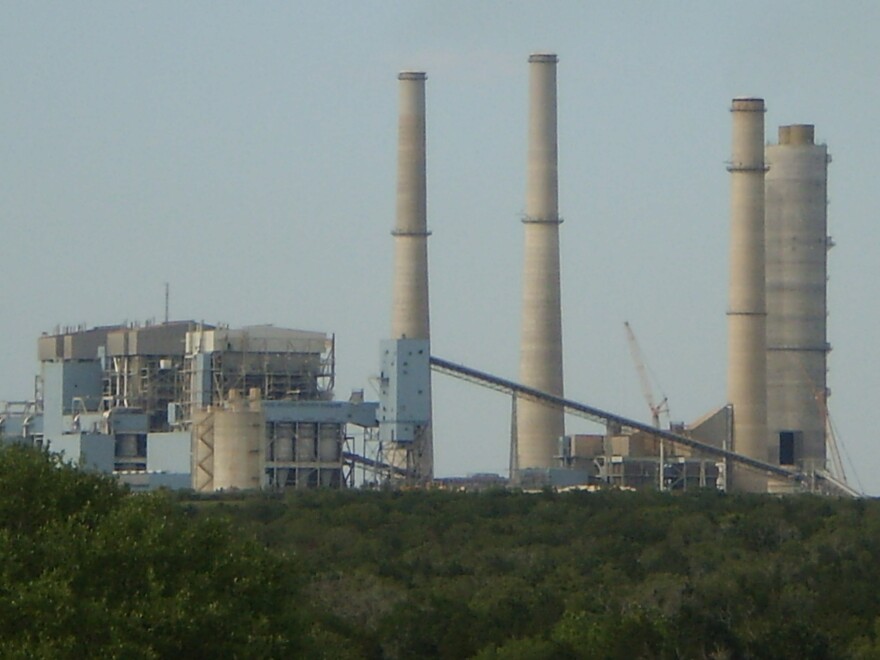Engineers at Southwest Research Institute are trying to make steam — the substance that has powered machines for centuries and helps generate the majority of electricity in the U.S. — a relic of the past.
A 10-megawatt supercritical carbon dioxide (sCO2) test facility at Southwest Research Institute recently achieved its first operation with sCO2 in its compressor section, which represents an important step in the process to develop increasingly efficient energy production methods without steam.
“We’re using CO2 as that working fluid [rather than water],” said Jeff Moore, an SwRI institute engineer and the project manager on the Supercritical Transformational Electric Power (STEP) Demo pilot plant.
“But we have a very similar power cycle," he explained, "in that we heat the CO2 up to a state that is what’s so-called ‘supercritical.' It’s above its critical point — basically above where it can either be a liquid or a vapor. And we heat it up, we run it through a specially designed turbine, we recover a lot of the exhaust heat, we compress it back up, and then we heat it again.”
Nuclear, coal, wind, and natural gas electricity generation typically use turbines that run off of steam from water. Moore said the research being done at SwRI, sponsored by the U.S. Department of Energy and in partnership with GTI Energy and GE, is moving to a world of energy production that replaces steam with sCO2 that can be 10% more efficient.
“Our process is approaching 50% thermal efficiency,” he said. “In other words, half of the heat is being useful in terms of operating and spinning the generator to make electricity. So it’s quite a bit more efficient than a traditional steam plant.”
Moore said one ambitious application of the sCO2 turbines could be burning natural gas with oxygen and capturing the entirety of the CO2 produced, turning a harmful emission into a sequestered source of energy. More research needs to be done before that type of technology could be applied, he noted.
Moore added that because CO2 is so much more dense than steam at the same temperature and pressure, it can produce much more electricity with a smaller physical footprint — roughly a tenth of the size of a plant producing the same amount of power.
“The overall size of the turbine is about the size of a V8 car engine that ... typically generates about 400 horsepower,” he said. “We’re generating 20,000 horsepower in that same size.”
Twenty thousand horsepower is equivalent to 15 megawatts.
Because of the unique properties of sCO2, researchers couldn’t just plug it into a traditional steam turbine. They had to develop a brand new one, and they're in the process of assembling it to prepare for more tests later this year.
“That turbine is now being installed in the plant,” Moore said. “The plant’s still under construction, we still have more work to do in terms of all the piping and electrical and instrumentation, but we hope to have all that completed by the end of the summer and start spinning it this fall.”
Once the turbine starts spinning, Moore said researchers will analyze all of the data that comes out and how each component of the plant functions when they’re dealing with more than abstract calculations.
Moore said it was only a matter of time before sCO2 turbines like the ones SwRI is developing become the norm.
“We already have turbine designs on the drawing board that are in the 400 to 500 megawatt scale, which is a true large-scale utility application,” he said. “We think it’ll happen, and it’ll happen because of the techno-economics — basically the efficiency compared to the capital cost.”



